
Developer: Adglobe
Publisher: Binary Haze Interactive
Platform: PC, PS4, Switch
Tested on: PC
Redemption Reapers – Review
It’s hard not to get excited when you take a look at the names involved with Adglobe’s latest title Redemption Reapers. The development team was behind the fantastic Ender Lilies, for starters. Fire Emblem veteran Masayuki Horikawa took on the role of director, with Metal Gear Solid’s Tomokazu Fukushima acting as lead writer. That’s without even mentioning the fantastic voice cast, although we’ll get to them. To say our expectations for this new strategy RPG were high would be an understatement. Was Redemption Reapers able to capitalize on the talent involved or did the game fail to meet our expectations?
Story
Although Redemption Reapers’ premise is simple, it takes a while before the main overarching story gets going. At the core of the main campaign is a conflict between humanity and the Mort, an Orc-like race that is raging over the continent. Enter the Ashen Hawk Brigade, the five stout defenders of humanity and our heroes in this epic tale. The story of the Mort invasion is told from their perspective, meaning that the player is only informed about what they know rather than having an all-encompassing idea of what is going on. It’s a tricky take on a continent-spanning tale, especially since the members of the Brigade aren’t fleshed out enough as individual characters that will grow on players. Central to the story is the dagger-wielding Sarah, the leader of the Ashen Hawks, and pretty much the only memorable character, as the friends she surrounds herself with feel rather generic and interchangeable, even though there are only four of them. There’s not a whole lot that we can say about Redemption Reapers’ story then, which is a shame because SRPGs are typically perfect for dramatic stories of warfare and political intrigue, with plot twists galore.
Graphics
Straying away from the anime aesthetic that we typically see in SRPGs, Redemption Reapers has a distinct visual identity. Gone are the bright colors, over-the-top outfits, and archetypal character designs. Instead, the world of Redemption Reapers is a bleak, desolate one, where the main color palette consists of dull grays and browns. It’s a subtle, yet surprisingly effective take on a fantasy setting, that adds a degree of realism that isn’t present in games like Reverie Knights Tactics. You’d expect a game with such a limited color palette to be a one-tone affair when it comes to visual variety, but there is plenty to take in visually here as well, from vast, dark forests to ruined cities and everything in between. Unfortunately, the same doesn’t necessarily apply to the player characters, who lack the visual flair to leave an impression.
Sound
Credit where it’s due: Redemption Reapers’ voice cast does a stellar job, although given the track record of the individual cast members, this doesn’t really come as a surprise. Familiar names include NieR: Automata’s Kyle McCarley, Dragon Age: Inquisition’s Allegra Clark, Persona 5’s David Lodge, and Trails of Cold Steel’s Lucien Dodge. There is Japanese dubbing available as well, although character lip movement seems to be synced to the English audio. Likewise, composer Rei Kondoh has already proven he can deliver a fantastic soundtrack with titles like Bayonetta 3 and Dragon’s Dogma under his belt and he delivers here again, with a brass- and percussion-filled OST that surpasses the overall quality of the game.
Gameplay
Rather than sticking close to the standard SRPG formula, Redemption Reapers uses the core elements of the genre as its gameplay foundation, and then layers new mechanics on top. If you’re a genre aficionado, you’ll still feel right at home, as battles still involve moving characters around on a battlefield grid in chess-like turn-based battles. However, the typical approach is that a unit moves and then performs an attack, before the game moves on to the next unit. In Redemption Reapers, unit actions are governed by Attack Points, or AP for short. These are cumulative, so any AP that remain at the end of a turn are added to a unit’s total. A unit can perform multiple actions in a single turn, provided they have enough AP remaining. The more powerful an attack, the more AP it consumes. It’s a simple system to wrap your head around, but it adds a very nuanced and effective layer of strategy.
There are some other elements here that aren’t necessarily genre mainstays, even though we’ve seen them before. You are able to toggle the visibility of enemy attack ranges on and off, for example, and weapons have a durability factor. Your characters essentially work together too, with overlapping skills and abilities that buff one another, making the positioning of units important, in order to make the most of adjacent party members’ bonuses. We were initially a bit surprised that Redemption Reapers didn’t force a permadeath mechanic on the player, but given the game’s steep and unforgiving difficulty curve, it’s perhaps for the best. This is something we quickly found out once we got to actual grips with the game.
As for that aforementioned difficulty curve, we’ll start by saying that Redemption Reapers certainly doesn’t pull any punches. We consider ourselves rather experienced when it comes to strategy RPGs but we were caught off-guard when even basic enemy grunts started chipping off significant chunks of health from our heroes. This is something that persists right from the get-go, with even tutorial stages putting the player at a severe disadvantage. Redemption Reapers’ difficulty isn’t just limited to how tough and powerful enemies are either, as resource management proves to be just as much of a challenge. Money is hard to come by, meaning that repairs or upgrades for existing weapons are a luxury rather than a commodity. Likewise, every purchase of new weapons or gear requires you to carefully consider whether it’s worth it. The main focus is on the battles, with the opening hours simply not even bothering to flesh out the story or the cast and just serving up one map after the other. In between the battles, there are some other gameplay elements, such as a training mode that ensures that under-leveled characters are able to keep up. That being said, these intermezzos in-between battles are a far cry from Fire Emblem Engage’s Somniel or Disgaea 6’s Netherworld hub areas.
As you progress and characters become more powerful, this actually becomes less of an issue, and Redemption Reapers’ latter half actually feels better balanced despite enemy forces becoming exponentially powerful. There is a distinct sense of progress as you clear those early stages, because early on, you feel like you’re having to scrape by on the skin of your teeth. The downside to this is that the best strategy is to turtle up with your units, which means that battles turn into slow wars of attrition rather than the fast-paced gameplay you may have come to expect from games like recent Fire Emblem titles. The game doesn’t imbue the battles with a sense of urgency either, leaving the stakes decidedly low, which further adds to the feeling that Redemption Reapers plays things a bit too slow for its own good.
We’re left with mixed feelings when it comes to Redemption Reapers’ gameplay. The core gameplay is solid and the implementation of AP is a solid addition that adds a genuinely interesting layer of strategy to the turn-based battles. However, everything that Redemption Reapers does well is undermined by the unforgiving learning curve, resource management, and overall lack of balance. We would have vastly preferred it had Adglobe dialed things down in the first half to then kick things up as the story progresses. The main story is roughly 18 hours long, but half of that time it feels like the game is actively working against you. That’s fine if you’re a diehard SRPG aficionado looking for a challenge, but if you’re a newcomer, taking on Redemption Reapers might be biting off more than you can chew.
Conclusion
While there is plenty to like about several of Redemption Reapers’ individual elements, the end product doesn’t entirely convince us. The lack of fleshed-out character personalities, the bland and uninspired storyline, and the drab character designs make it difficult to make the player care about seeing the story through to the end. This could have been easily resolved by ensuring that the gameplay was addictive, but apart from a handful of interesting ideas, Redemption Reapers’ battles turn out to be sluggish affairs. The game’s difficulty curve feels like it’s reversed, as the game’s latter half is easier than the opening stages. The end result is a messy SRPG that could have been so much better.
Redemption Reapers - Review,1 Comment
Leave a Reply
You must be logged in to post a comment.

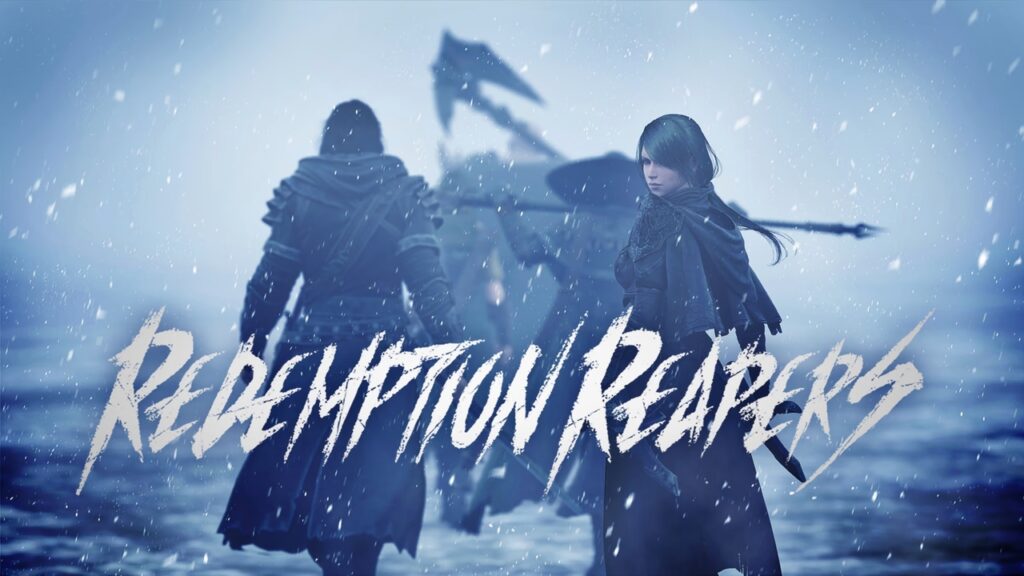
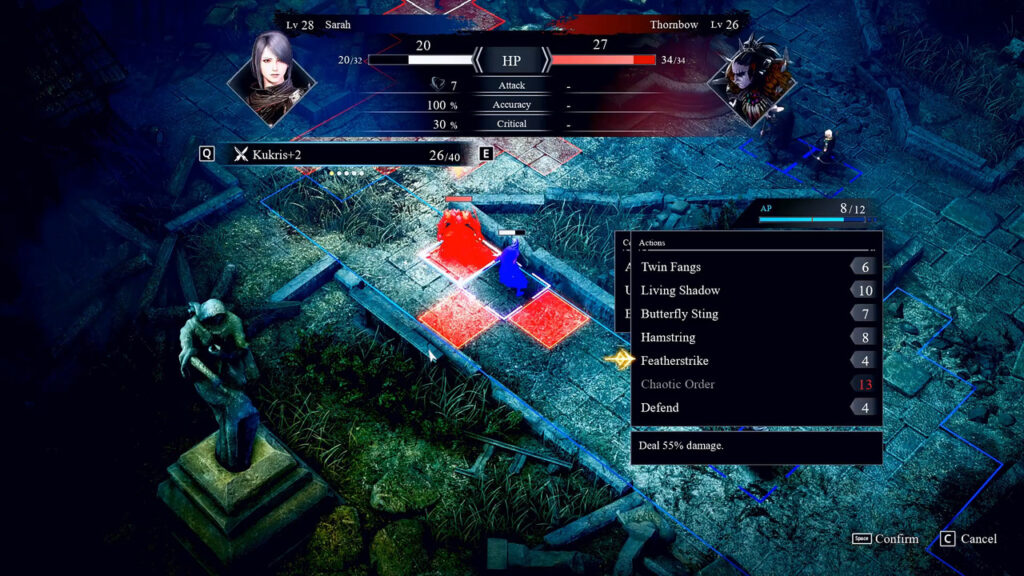
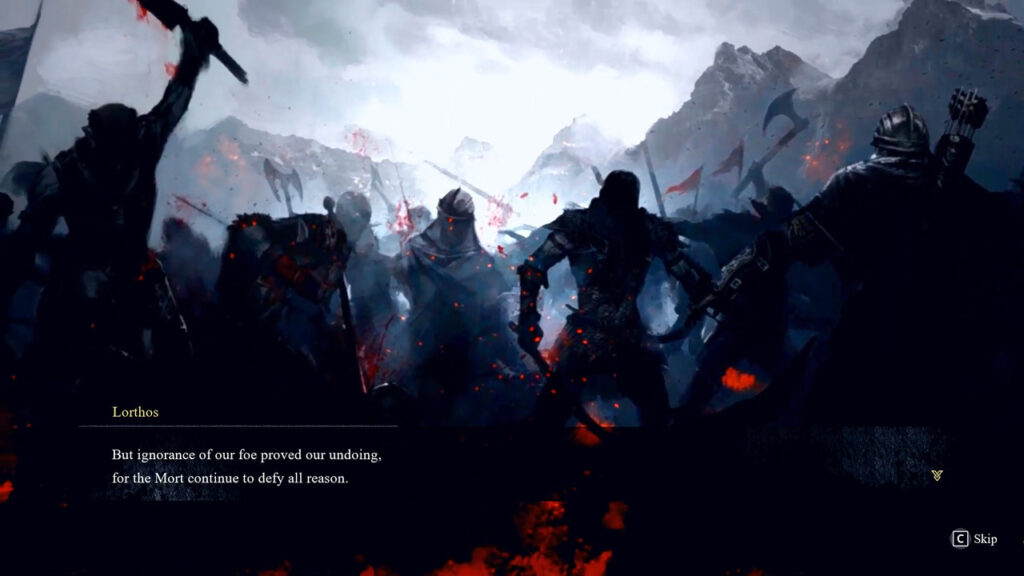
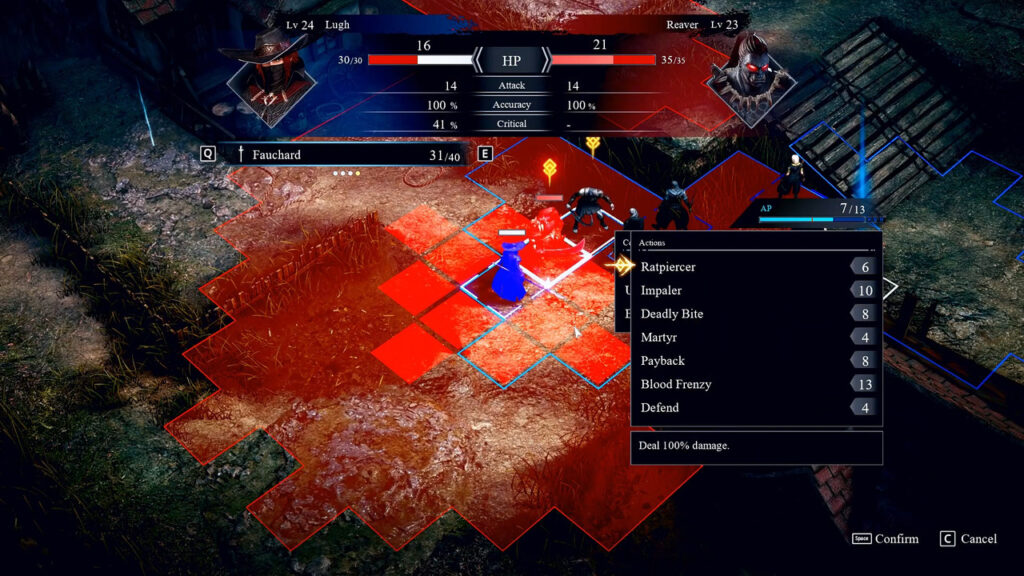
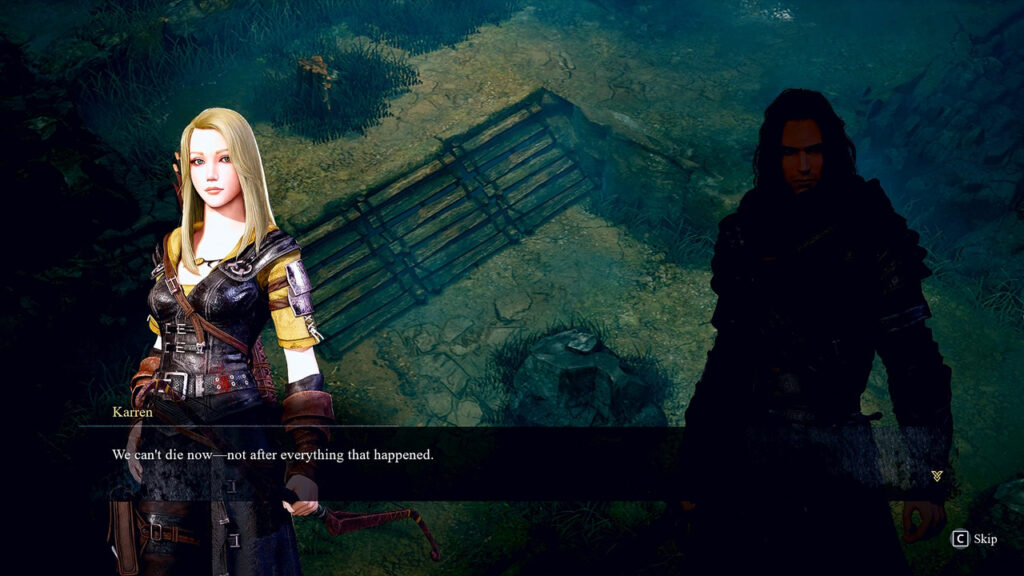
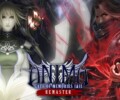


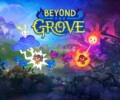
[…] tactical RPG by Adglobe and published by Binary Haze Interactive, Redemption Reapers, has received a 40% discount on Steam for PC and Nintendo Switch from Wednesday, May 24 to […]